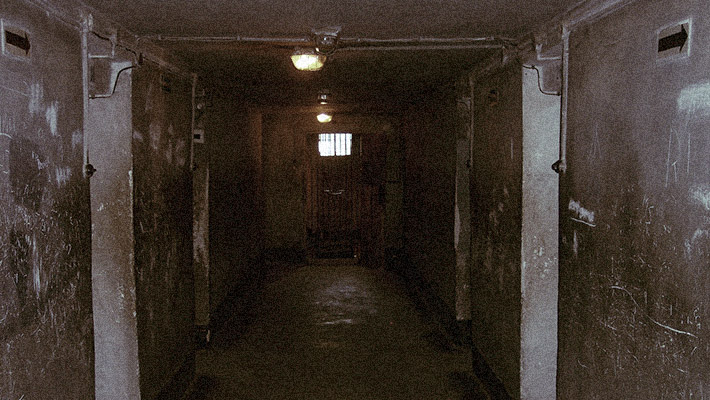by Kasun Yapa Karunaratne, Journalists for a Democratic Society, Europe, November 1, 2016

In a damning report to the UN, Sri Lanka’s top human rights body has confirmed that the country’s police force maintain secret detention centers as exposed by local and international rights activists.
The much feared Terrorist Investigation Department (TID) runs these illegal centers, according to the report submitted to the UN Committee Against Torture (UNCAT) by the Sri Lanka Human Rights Commission (SLHRC).
Several human rights bodies have exposed that the Sri Lankan state maintains secret detention centers, a claim so far denied by the government.
Only three ‘gazetted’
SLHRC has found evidence about the existence of such officially undocumented torture cells around the island in addition to ‘gazetted’ detention centers in Colombo, downsouth Boosa and the Tamil town of Vavunia.
“Upon inquiry it was revealed the places at which persons were held for at least twelve hours were offices of the TID but not gazetted detention centers. The TID has only three gazetted places of detention – Boosa, TID Vavuniya and TID Colombo.”
JDS report to UNCAT
The SLHRC has recognized ‘torture to be of routine nature that is practiced all over the country’ an observation endorsed by JDS in its report to UNCAT.
JDS has provided substantial evidence that highlights the continuation of the repressive torture mechanism under the present Sri Lanka government.
Perpetrators who oversaw torture during the Mahinda Rajapaksa regime continue to hold on to positions of power with impunity following the regime change in January 2015, it has told the UN.
Over 600 cases
SLHRC in its report to UNCAT has documented over 600 complaints of torture by state security received by them since 2015.
While 420 cases of torture has been recorded in 2015, SLHRC has received 208 complaints in the first eight months of 2016.
The report also has also highlights the detention of people for years without access to justice held under the draconian Prevention of Terrorism Act (PTA).
“Based on the statistics at the disposal of the Commission obtained from the Department of Prisons, as at May 2016, of the one hundred and eleven (111) persons who still remain in remand custody under the PTA, twenty-nine have not been indicted. It should be noted this does not take into account those arrested and remanded thereafter when there were a spate of arrests under the PTA. The longest period a person has been on remand without indictment being filed is fifteen years. The longest period a trial has been on-going is since 2002, i.e. fourteen years. Forty-one persons are appealing their sentences under the PTA with the longest period the person has been awaiting a decision being fourteen years.”
The following organisations have already submitted their reports on torture in Sri Lanka to UNCAT, which is expected to discuss them at the review of the fifth periodic report of Sri Lanka in mid November.
Asian Legal Resource Centre,
British Tamil Forum,
Freedom from Torture,
Global Justice Center (GLC) and World Organization Against Torture (OMCT),
Sri Lankan NGO Collective against torture &
US Tamil Political Action Council.
Human Rights Commission Tells UN Committee ‘Torture Routine In All Parts Of Sri Lanka’
The Human Rights Commission of Sri Lanka (HRCSL) has disclosed that torture is routinely used in all parts of Sri Lanka, regardless of the nature of the suspected offence for which the person is arrested.
In a 17 page report submitted to the UN Committee Against Torture for the review of the 5th periodic report of Sri Lanka, HRCSL also pointed out that even though the Commission had requested for information from the Attorney-General’s Department on the number of indictments filed and convictions under the Convention Against Torture Act, but to date is yet to receive the requested information.
“The Commission following its appointment in late October 2015 found there have been long delays in dealing with torture complaints, with the sense these cases were not prioritised in the past, and has taken action to expedite investigations. Further, due to weak documentation and archiving systems, hamper its ability to provide greater breakdown of data. The Commission is streamlining its inquiry and investigation processes, including training for staff, mechanisms ensure staff accountability and formulating procedural manuals. To support effective inquiry and investigation the Commission is adopting measures to strengthen its documentation and archiving systems and procedures as well,” HRCSL said in its report.
The commission has also called for the amendment of the definition of torture in Section 12 of the Convention Against Torture Act and Other Cruel, Inhuman or Degrading Treatment or Punishment Act no 22 of 1994 to expand the definition of torture to all acts of torture, including those causing severe suffering, in accordance with article 1 of the Convention Against Torture.
“The Government ratified the Convention for the Protection of all Persons from Enforced Disappearances on 25 May 2016. Adoption of enabling legislation, which is required to give effect to the Convention at the national level, is still pending,” the report said.
“The complaints received by the Commission illustrate that torture is routinely used in all parts of the country regardless of the nature of the suspected offence for which the person is arrested. For instance, those arrested on suspicion of robbery, possession of drugs, assault, treasure hunting, dispute with family/spouse, have been subjected to torture. The prevailing culture of impunity where those accused of torture is concerned is also a contributing factor to the routine use of torture as a means of interrogation and investigation,” the Commission said.
According to HRCSL, usually, complainants are from low-income groups. The Commission has received complaints of persons sometimes being arrested with family members, sometimes arrests being made due to mistaken identity, and torture used to elicit information or to punish. “For example, in a case from Weligama in the Southern Province the complainant was beaten, threatened at gunpoint and taken to the police station by three policemen dressed in civilian clothing in front of his family due to mistaken identity, which was revealed when his identity card was checked at the police station. The medico-legal report confirmed his injuries,” the Commission said.
According to the report in 2010 the Commission received 566 complaints against torture, while this number increased to 579 in 2011. In 2012 there were 542 complaints followed by 600 complaints in 2013. In 2014, a total of 489 complaints were lodged in relation to torture, while in 2015 there were 420 complaints. As of August 31, 2016, a total of 208 complaints have been received in relation to torture, with a majority of the complaints being recorded at the Commission’s head office in Colombo.
